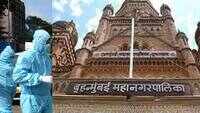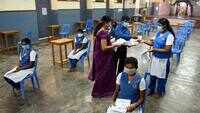
Nagpur: Kishore Tiwari, chairman of Vasantrao Naik Shetkari Swavalamban Mission (VNSSM), the state government task force on farm distress, has opposed the Centre’s move to ban 27 pesticides. The order is in draft stage at present.
The government is banning the chemicals on the grounds that enough scientific data has not been submitted for these products. One of the chemicals to be banned is monocrotophos—which was seen to be largely used by the farmers who died of pesticide inhalation in 2017.
On this, Tiwari said the accidents were controlled to a considerable extent in subsequent years by promoting right spraying practices. He said, “The 27 pesticides constitute about 20% of the domestic pesticide market. The ban will be affecting the farmers adversely. The chemicals are being safely used in the country.”
The pesticides cost Rs 180 to 250 per acre of spraying. After the ban, the farmers will have to go for imported substitutes which cost as much Rs 5,000 per acre, said Tiwari. For some substitutes, the number of sprays will have to be increased, he said.
Tiwari told TOI the move will ultimately help foreign companies at the cost of domestic industry. He said the domestic industry has claimed most of the required data has been submitted.
Twenty four of the 27 pesticides have been registered in US, Japan, Canada, South Korea, Brazil and other Asian and African countries, said a press release issued by Tiwari.
Tiwari’s statement comes after the letter sent by the secretary (ministry of chemical and fertilisers) R K Chaturvedi on this matter to his counterpart in the ministry of agriculture.
Chaturvedi also opposed the move to ban the pesticides. The letter said the pesticides have been registered by the Central Insecticide Board and Registration Committee (CIB&RC) after submission of all the requisite data. Once registered, a pesticide is supposed to meet all the requirement of bio-efficacy, toxicity and risk management to human and animal life.
Amid the current struggle by the farmers due to the pandemic and locust attack it may not be an appropriate step to ban the pesticides, said the letter by Chaturvedi.
The government is banning the chemicals on the grounds that enough scientific data has not been submitted for these products. One of the chemicals to be banned is monocrotophos—which was seen to be largely used by the farmers who died of pesticide inhalation in 2017.
On this, Tiwari said the accidents were controlled to a considerable extent in subsequent years by promoting right spraying practices. He said, “The 27 pesticides constitute about 20% of the domestic pesticide market. The ban will be affecting the farmers adversely. The chemicals are being safely used in the country.”
The pesticides cost Rs 180 to 250 per acre of spraying. After the ban, the farmers will have to go for imported substitutes which cost as much Rs 5,000 per acre, said Tiwari. For some substitutes, the number of sprays will have to be increased, he said.
Tiwari told TOI the move will ultimately help foreign companies at the cost of domestic industry. He said the domestic industry has claimed most of the required data has been submitted.
Twenty four of the 27 pesticides have been registered in US, Japan, Canada, South Korea, Brazil and other Asian and African countries, said a press release issued by Tiwari.
Tiwari’s statement comes after the letter sent by the secretary (ministry of chemical and fertilisers) R K Chaturvedi on this matter to his counterpart in the ministry of agriculture.
Chaturvedi also opposed the move to ban the pesticides. The letter said the pesticides have been registered by the Central Insecticide Board and Registration Committee (CIB&RC) after submission of all the requisite data. Once registered, a pesticide is supposed to meet all the requirement of bio-efficacy, toxicity and risk management to human and animal life.
Amid the current struggle by the farmers due to the pandemic and locust attack it may not be an appropriate step to ban the pesticides, said the letter by Chaturvedi.

Coronavirus outbreak
Trending Topics
LATEST VIDEOS
City
 Jyotiraditya Scindia and his mother test positive for Covid-19, admitted to Delhi hospital
Jyotiraditya Scindia and his mother test positive for Covid-19, admitted to Delhi hospital  Umar Khalid's aide Khalid Saifi taken under police custody for his role in Delhi anti-Hindu riots
Umar Khalid's aide Khalid Saifi taken under police custody for his role in Delhi anti-Hindu riots  Mumbai: 55-year-old senior BMC officer dies of Covid-19
Mumbai: 55-year-old senior BMC officer dies of Covid-19  All students to be promoted, Tamil Nadu Class 10 board exams cancelled
All students to be promoted, Tamil Nadu Class 10 board exams cancelled
More from TOI
Navbharat Times
Featured Today in Travel
Quick Links
Kerala Coronavirus Helpline NumberHaryana Coronavirus Helpline NumberUP Coronavirus Helpline NumberBareilly NewsBhopal NewsCoronavirus in DelhiCoronavirus in HyderabadCoronavirus in IndiaCoronavirus symptomsCoronavirusRajasthan Coronavirus Helpline NumberAditya ThackerayShiv SenaFire in MumbaiAP Coronavirus Helpline NumberArvind KejriwalJammu Kashmir Coronavirus Helpline NumberSrinagar encounter
Get the app



